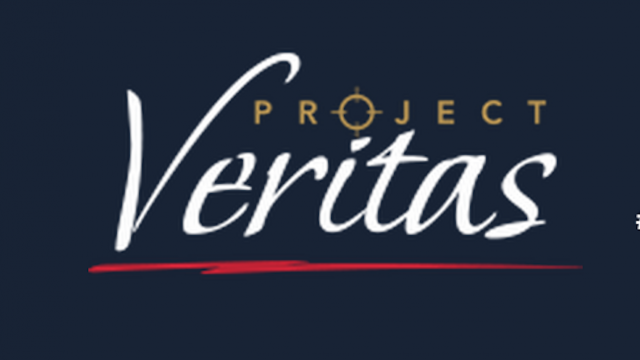
"I think they've decided that in order to get that needle to move, they need to do something more," said Wade Symons, leader of the regulatory resources group at Mercer, an employee benefits consultancy.
Those that are not ready to impose vaccine mandates plan to penalize unvaccinated workers by requiring them to pay an insurance surcharge costing several hundred dollars a year. Symons said clients have asked him about how to charge unvaccinated employees more for their insurance to cover the costs of massive hospital bills.
"It's something we've just started getting questions about in the last couple of weeks," Symons said. "The number of questions has been surprising in the volume. This is something they're more willing to take on. It's less than a mandate."
Some workers could face an additional $20 to $50 per paycheck. That would translate into several hundred dollars annually in extra costs.
"Unvaccinated folks have the potential to cost employers more from a health care cost perspective, so they're feeling they're justified in that additional surcharge," Symons said, apparently clueless about the costs imposed by vaccine damage and adverse reactions.
There were also companies imposing what experts call a "soft mandate." Meaning, those resisting vaccination simply have to undergo regular testing. Other companies just ask nicely or stick with giving away incentives, hoping not to scare workers off.
Big Tech, mainstream media impose vaccine mandate on employees
Big Tech companies require employees to be vaccinated against the virus before returning to the office.
On July 28, Facebook announced that it will require workers returning to its offices to be vaccinated. "As our offices reopen, we will be requiring anyone coming to work at any of our U.S. campuses to be vaccinated," Facebook's VP of People Lori Goler said in a statement. "How we implement this policy will depend on local conditions and regulations."
Facebook hasn't delayed its reopening plans for this fall. The social media giant has previously said it would likely open most of its U.S. offices at half capacity in September, and then fully in October. "Expert guidelines state that vaccines are highly effective at preventing variants of COVID-19, including the delta variant," a Facebook spokesman said. "Our timelines to reopen our offices haven't changed."
Also on July 28, Google CEO Sundar Pichai told employees that they must be vaccinated before returning to the office. He said that the company would delay its return to office plans by one month because of the delta variant.
Amazon also encouraged employees and contractors to be vaccinated. While the company's current guidelines don't appear to require vaccination in order to return to its offices, its unvaccinated employees are required to wear masks. Face coverings are optional for those who have verification of being fully vaccinated.
"What you're seeing is employers realizing that that resistance is softer than it might have been a few months ago as the delta variant gets more extreme," said Denise Rousseau, professor of organizational behavior and public policy at Carnegie Mellon University's Heinz College.
Some media companies have also imposed vaccine mandates on their employees.
CNN recently terminated three of its employees for coming to the office unvaccinated against the virus. In a memo sent to staff internally by the news media company, CNN President Jeff Zucker told employees that the company has a zero-tolerance policy on such instances and required its employees to be vaccinated to come to the office or to work on the field with other employees.
In the same memo, Zucker announced that CNN would delay its mandatory return to office from Sept. 7 likely to mid-October due to the surge of COVID-19 cases driven by the delta variant.
The company offered no details on the firings or where the employees were based. Zucker said showing proof of vaccination may become a formal part of the process for gaining access to the network's workplaces in the weeks ahead.
The Washington Post and the New York Times also require staffers to be vaccinated against COVID-19 as a condition of employment or if they want to come back to work in person.
Unions speak up as more companies impose vaccine mandates
Unions representing teachers, sheriff's deputies and state workers have spoken up against vaccine mandates. (Related: Influential American Postal Workers Union opposes federal COVID-19 vaccine mandate.)
"We have a right to bargain over a new work rule," said Debbie White, president of Health Professionals and Allied Employees – New Jersey's largest health care union.
Most union contracts will prevent employers from imposing mandates without negotiating, Schmidt said.
Employers recognize that resistance is particularly strong in some quarters. Nearly 3 in 10 American adults haven't gotten at least one dose of COVID-19 vaccine. Given how many employers are grappling with worker shortages, they may want to avoid upsetting their staff.
Incentives may do the trick for companies that don't want to force their workers to get vaccinated. According to Blackhawk Network's research, 51 percent of unvaccinated workers said a financial incentive would motivate them to start and complete the vaccine process.
Some employers have realized that resistance is softer than it might have been a few months ago as the delta variant enters the scene. Hundreds of hospitals, health systems and nursing homes have required employees to be vaccinated.
Companies from industries that require employees to interact with the public have done the same. In the travel sector, United Airlines is among the first major companies to issue a vaccine mandate to its employees. Flight attendants and gate agents work directly with the public, putting themselves and travelers at risk.
Follow Immunization.news for more news and information related to coronavirus vaccines.
Sources include:
Please contact us for more information.























